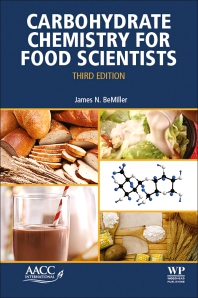Books in Carbohydrates
Books in Carbohydrates

Sprouted Grains
Nutritional Value, Production, and Applications- 2nd Edition
- October 8, 2024
- Hao Feng + 3 more
- English

Storage of Cereal Grains and Their Products
- 5th Edition
- August 5, 2022
- Kurt A. Rosentrater
- English

Asian Noodle Manufacturing
Ingredients, Technology, and Quality- 1st Edition
- August 20, 2020
- Gary G. Hou
- English

Applications of Genetic and Genomic Research in Cereals
- 1st Edition
- November 19, 2018
- Thomas Miedaner + 1 more
- English

Corn
Chemistry and Technology- 3rd Edition
- November 9, 2018
- Sergio O. Serna-Saldivar
- English

Carbohydrate Chemistry for Food Scientists
- 3rd Edition
- October 1, 2018
- James N. BeMiller
- English

Bioactive Polysaccharides
- 1st Edition
- October 19, 2017
- Shaoping Nie + 2 more
- English

Stored-Product Insect Resource
- 1st Edition
- June 20, 2017
- David Hagstrum + 1 more
- English

Gluten-Free Baked Products
- 1st Edition
- September 28, 2016
- Jeffery L Casper + 1 more
- English

Wheat Flour
- 2nd Edition
- September 28, 2016
- William A Atwell + 1 more
- English